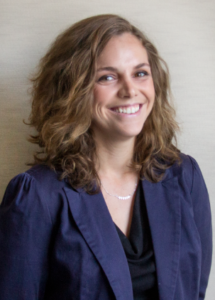Paige McKinsey is currently a Masters Student at George Washington University
1.Why did you choose WGST/IA at UMW?
I had an interest and passion for girls’ education in the Global South. Double majoring in WGST and IA seemed like the best way to gain the fullest understanding of the issues for myself.
2. What was your favorite part of the major/minor?
– My favorite part of the WGST major was that it made me think differently. It’s also a major that is not only a subject of study but, for many of us, a lifestyle that calls us to action. The major doesn’t simply teach you to see gender dynamics and the ways in which gender norms perpetuate systems of oppression; the best classes taught an intersectional approach that made you see the world in a different way and makes you want to enact positive change.
3. What clubs were you a part of and did you do study abroad? How were those experiences and how did it aid your education?
– I was a part of Feminists United all four year at UMW and was President of the club during my senior year. To clarify, I didn’t found the group but I was there for its first meeting. The club was founded the Spring semester before I arrived in response to an article posted in the school paper. As a club we organized with Divest UMW, the Black Student Union, Women of Color, and Diversability. I also participated in PRISM and the Young Dems. In the summer before my Junior year I did a study abroad in Paris to study French. This proved an important experience when I wound up serving in francophone West Africa. All of these experiences were amazing and I still keep in touch with and am friends with the people I met through these opportunities. As far as aiding my education, I think the best education calls us to action, which is what those groups did. As President of Feminist United, we worked hard to make our community a more inclusive and safer place for students. Working on these issues that we studied in class made our studies all the more salient.
4. What have you been doing in post-grad and how did WGST/IA at UMW guide you to where you are today?
– Immediately after graduation, I began my service as a Peace Corps Volunteer in Togo, West Africa where I served for 2 years. With a background in WGST, I was able to take on leadership roles within Peace Corps centered around gender including acting as the Program Coordinator for the Peace Corps Togo Gender and Development Committee, the Gender Organizer for a national girls’ science camp and teacher training, and as a researcher for Pathways Togo, an NGO that provides scholarships to Togolese girls. I can tell you that by majoring in WGST, I was more comfortable and prepared to discuss and develop projects focused on gender than other volunteers. Right now I am currently earning my Masters in International Development Studies with a concentration in youth and gender and development at The George Washington University. In this past semester I took a Gender and Development course as well as a course on the role of gender advisors in NGOs. Right now I am taking a course on Women’s Leadership in Africa. My background studies in WGST has allowed me to engage with the topics in these courses in a more meaningful way.
5. What is something you want incoming students to know about these programs?
– When I was in the major, I was also the student representative when we had prospective student days. I always had parents asking me how a degree in WGST would be useful. Since that time, we’ve seen the #MeToo movement, the Women’s Marches, the Black Lives Matter movements, the Environmental movement, etc. I wonder how often people ask that question now. To enter into the workforce without the critical thinking tools and skills that a liberal arts education will provide, especially a WGST or IA degree, would be to enter the workforce unprepared. I’m writing this to you as the city I live in is in rebellion. These issues are affecting our lives right now. We need to develop the skills necessary to engage with the world and move to enact change. These programs can help to get you there.
